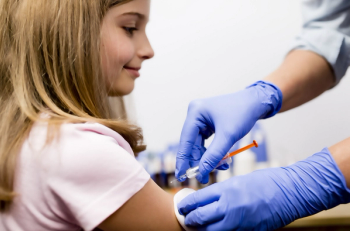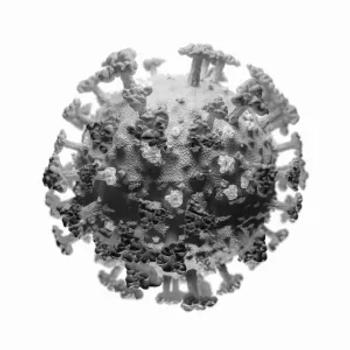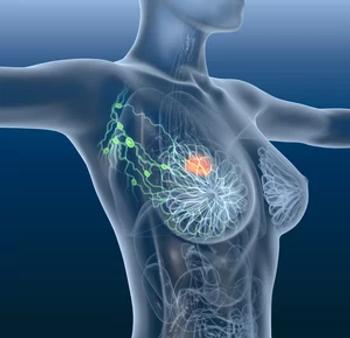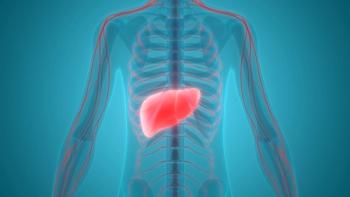
A recent study suggests that homologous and heterologous vaccines protect against the Omicron variant of COVID-19, but the heterologous appears more durable.
Erin Hunter is an assistant editor at Pharmacy Times®. She is a proud alumna of the University of Massachusetts. She graduated with degrees in Journalism, Art History, and Environmental Conservation.

A recent study suggests that homologous and heterologous vaccines protect against the Omicron variant of COVID-19, but the heterologous appears more durable.

Tuberculosis affects millions of people worldwide, but the only known vaccine may only protect children who are 5 years of age or younger.

A new study predicts significant increases in cardiovascular issues in the United States, highlighting racial and ethnic inequality of future patients.

Use of hormone therapy to treat prostate cancer may require more consideration by health care providers as new study shows the therapy may increase the risk of heart disease.

Based on overall response rate, acalabrutinib in tablet form is now FDA approved for all approved indications, enabling co-administration alongside a proton pump inhibitor.

Health care workers who got 4 total doses against COVID-19, 2 doses of which are boosters, experienced more than 10% lower breakthrough infection rate than those with only 3 total doses.

A new neutralizing monoclonal antibody could become an inhaled cocktail for long-term COVID-19 prevention.

The CDC published a new study, which found that a second mRNA booster shot would be effective against the Omicron variants of COVID-19.

Receiving a human papillomavirus vaccine and local surgical treatment could reduce the risk of recurring cervical lesions by 57%.

A recent study revealed that social activities like gardening or getting a college degree could improve cognition in older age, which could possibly prevent Alzheimer disease.

The FDA approved a new drug that treats unresectable and metastatic HER2-low breast cancer, giving patients with this new subtype a treatment beyond chemotherapy.

While the vaccines continue to provide critical, evidence-based protection against the coronavirus, rare cases of myocarditis and pericarditis have been reported.

Patients can better understand the most current recommendations for breast cancer screening with the new NCCN Guidelines for Patients®: Breast Cancer Screening and Diagnosis.

Findings in a new trial show that dietary supplementation of resistant starch has the potential to decrease people’s risk of certain types of gastrointestinal cancers.

Using computational methods, the development of an HIV therapy cocktail based on the virus’ genetics was found to increase the efficacy of treatment.

A new case study found that depictions of diverse female scientists on social media inspired other women in STEM, but stereotypes of how women in STEM should look and dress persist in comments section.

Abbott will work with the FDA to expedite the review of their deep brain stimulation system to treat the life-threatening disease of treatment-resistant depression.

Compared to atorvastatin, rosuvastatin was associated with higher risks of blood in the urine and kidney failure that requires replacement therapy.

Researchers found high levels of childcare stress among female and racial minority health care workers, supporting new programs and wellbeing initiatives.

A majority of long-term care patients who received a fourth vaccination against COVID-19 were found to have increased protection against the omicron variant.

People who are afraid of shots or feel lightheaded and dizzy while near vaccine injection sites are less likely to get vaccinated against COVID-19.

It’s common practice to recommend heart failure patients follow low sodium diets, but research has shown this type of diet may worsen patient health for certain forms of the condition.

Records from 11 million patients shows that non-alcoholic fatty liver disease could increase the risk of developing heart failure by 50%.

Researchers highlight how a lack of access to medications used to treat multiple sclerosis, migraines, and epilepsy, but not proven safe for pregnancy, threatens child-bearing aged women who live with these conditions.

FDA accepts supplemental Biologics License Application for Hyrimoz HCF, a biosimilar with the same indications as adalimumab (Humira).

A possibly life-threatening and transmissible liver disease has been affecting children in the US and the UK since 2021.

Lumryz (FT218) treats cataplexy and excessive daytime sleepiness caused by narcolepsy.

Zonisade is the first and only FDA-approved oral liquid formulation of zonisamide, which helps patients with epilepsy who have difficulty swallowing tablets.